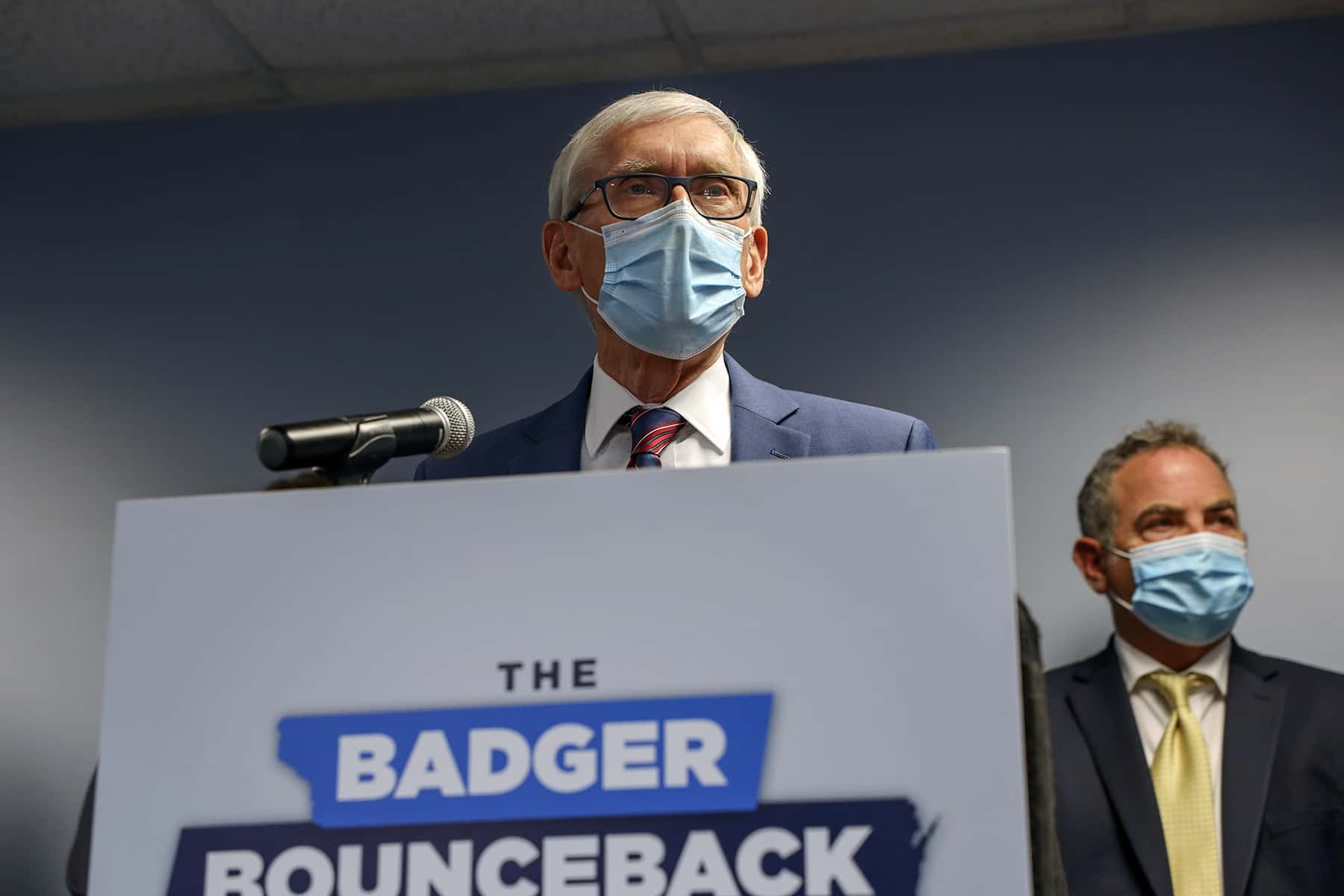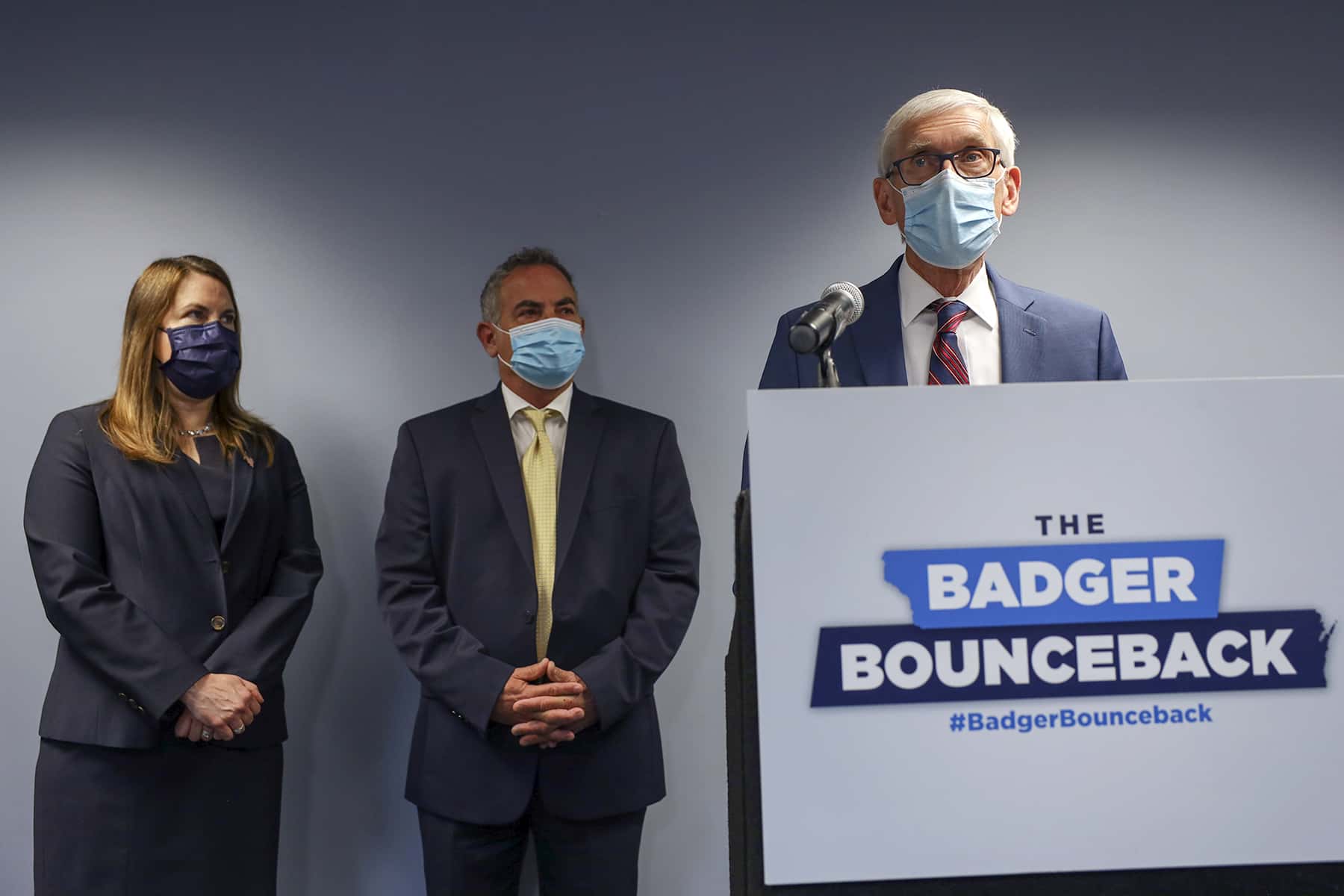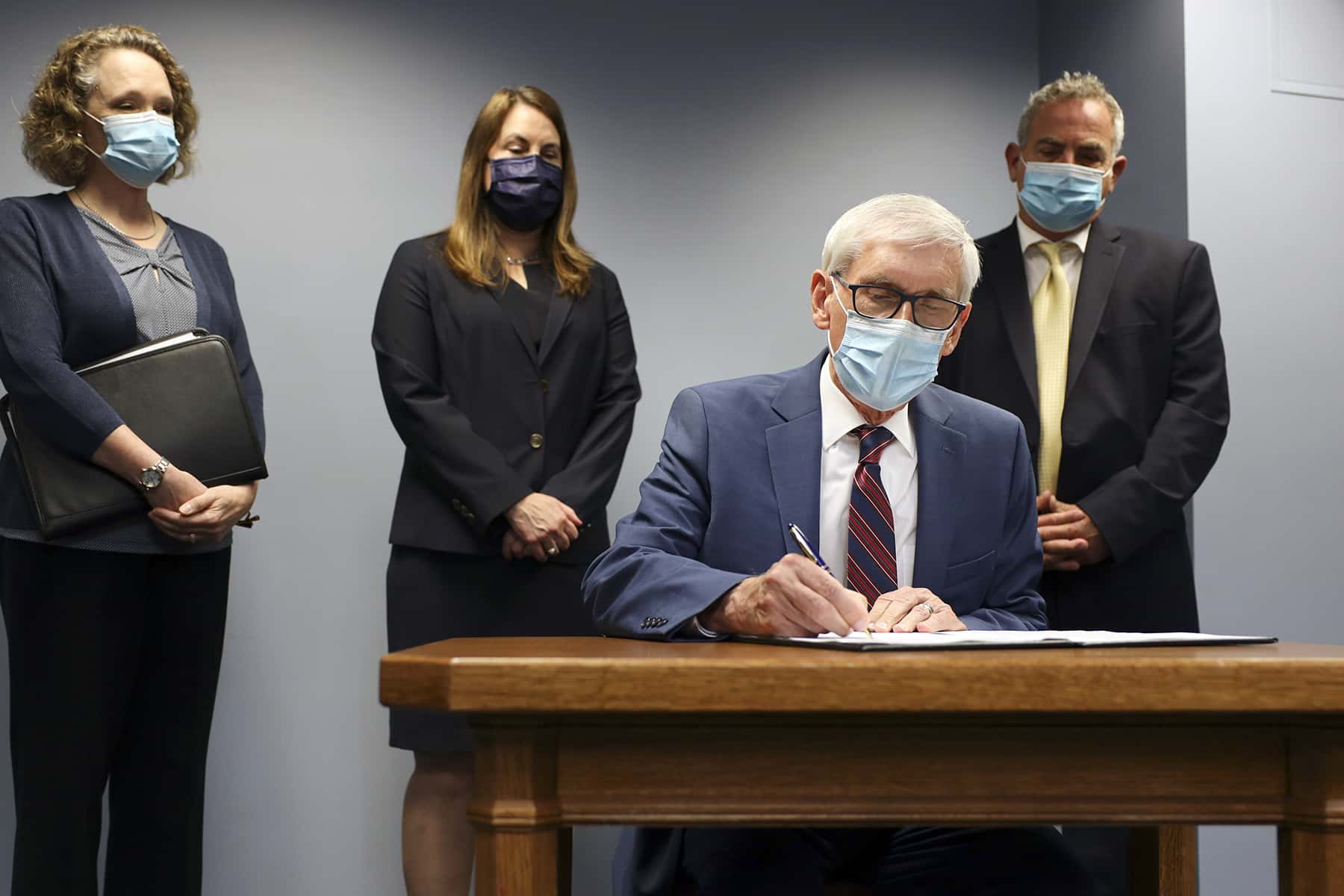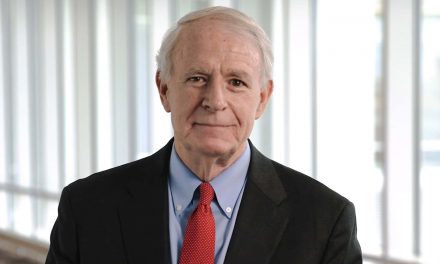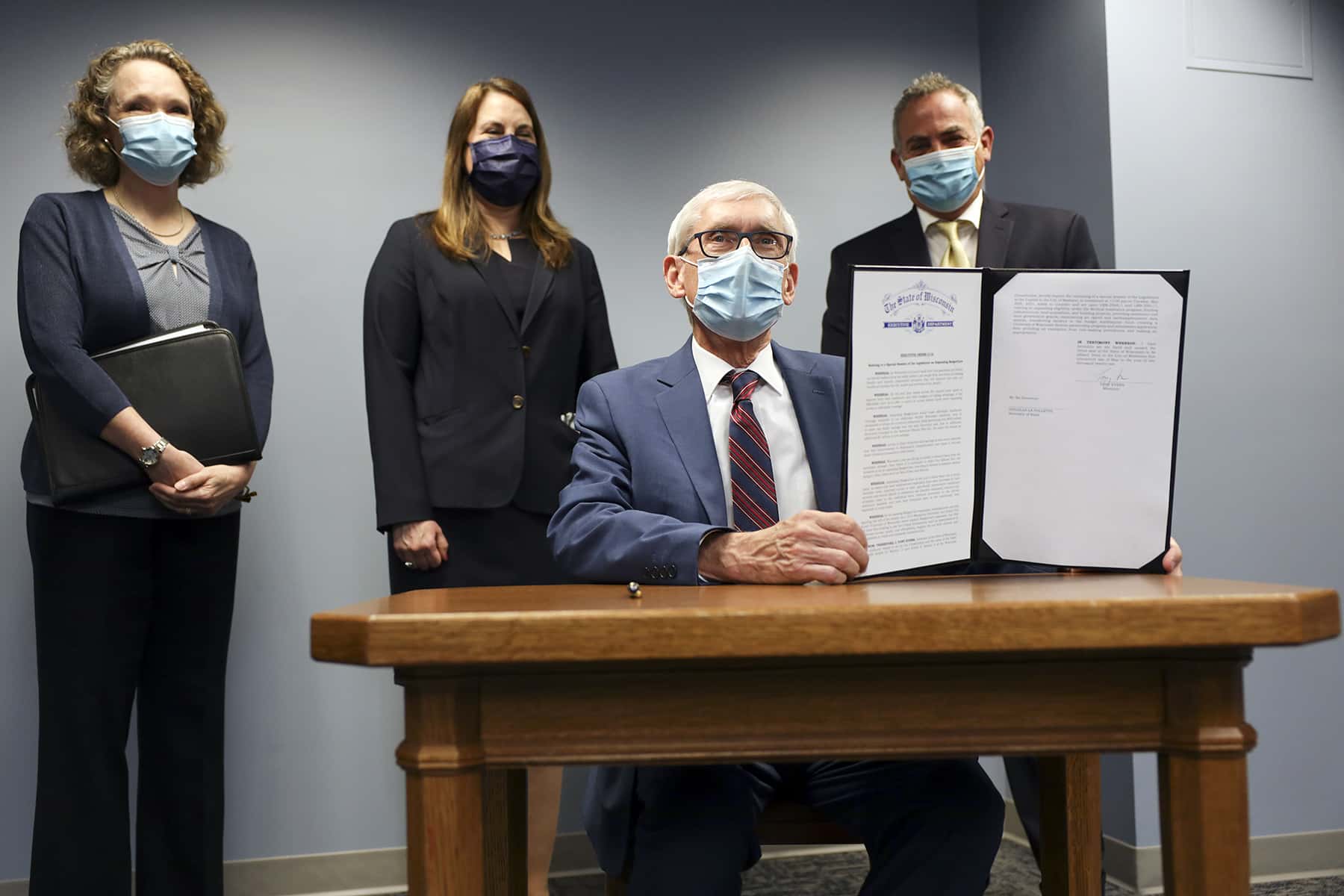
Governor Tony Evers announced on May 19 that he was calling a special session to expand BadgerCare, and invest the $1 billion in cost savings realized under the American Rescue Plan Act (ARPA) into Wisconsin’s economic recovery.
With more than 50 projects and economic development initiatives across the state in need of funding dispersement, the governor signed Executive Order #116 calling a special session of the Wisconsin State Legislature to take up LRB-3568 on May 25 at noon.
The ARPA provides an additional, temporary fiscal incentive for states to adopt a provision to expand Medicaid. Under the ARPA, Wisconsin would realize an estimated cost savings of $1.6 billion by expanding BadgerCare. Earlier this month, Republicans on the Legislature’s Joint Finance Committee gutted nearly 400 provisions from Governor Evers’ Badger Bounceback agenda, his 2021-23 biennial budget, including a provision to expand BadgerCare.
“We’re not only going to expand access to healthcare for tens of thousands of people across our state, we’re going to use that $1 billion we’d save and put it toward making sure our economy can bounce back and recover from this pandemic,” said Gov. Evers. “It’s time for Republicans to put politics aside, and let’s work together to invest in economic development and recovery efforts across our state.”
The governor’s announcement came as Wisconsin recently learned the state would receive $700 million less under the ARPA than previously expected due to the state’s higher employment numbers.
“There’s even more urgency to do everything we can to ensure our state has the resources to bounce back and our economy can recover from COVID-19,” said Governor Evers. “Here’s the bottom line: we can’t let politics get in the way of doing the right thing. It’s time to put people first and focus on making fiscally and morally responsible decisions that will improve not only the health of our people but help our state’s bottom line—we can do both.”
New research released by the Kaiser Family Foundation, which was recently highlighted by the Wisconsin Department of Health Services, analyzed more than 600 studies that evaluated the impact of Medicaid on individuals as well as state economies and state budgets. The Kaiser Family Foundation’s findings have been published in a literature review that builds on similar, previous investigations. In states that have expanded Medicaid, more people have access to health care.
With more access, more people are able to use preventive health care services, like diagnosis and treatment for chronic conditions, and patients see improved health outcomes. With more people accessing cancer screenings, early-stage diagnosis rates increase. More people are able to access treatment for mental health or substance use disorder challenges, both because they have insurance and because more behavioral health service providers begin accepting Medicaid members. Medicaid expansion is connected with lower rates of death; expansion states have seen a significant decrease in their mortality rates.
Under LRB-3568, the state would invest in projects in communities across the state including Stevens Point, Green Bay, Superior, Racine, Manitowoc, Eau Claire, and Reedsburg, among others. The bill also includes statewide initiatives to jump-start Wisconsin’s economy and would transfer more than $151 million into the state’s budget stabilization fund, also known as the “Rainy Day Fund.”
© Photo
Coburn Dukehart

